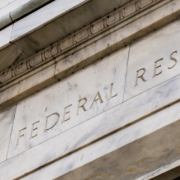Industrial Cap Rates Expected To Rise But Outlook For Seasoned Investors Remains Strong
Industrial has been on quite a tear over the past few years, as changes in consumer behavior have driven demand for more logistics and fulfillment facilities in key markets.
And according to one industry expert, the sector should stay a favored asset class for experienced investors, despite rising capital costs.
“Post-pandemic consumer behavior has changed and the rate of growth in ecommerce has slowed which has already led to pullbacks by some companies,” says Greg Burns, Managing Director at Stonebriar Commercial Finance, noting Amazon’s recent announcements regarding its industrial portfolio. “Demand for industrial though was driven by other factors as well including a move toward onshoring and the disruption of just in time supply chains.”
With that said, however, Burns said “depending on the what and the where, I would not be surprised to see cap rates widen another 50 to 100 basis points.”
“The cost of debt and equity capital have increased and cap rate hurdles have increased for institutional buyers,” Burns says, adding that he recently saw an increase of 100 basis points in an appraisal for a property in a market where his firm closed a deal six months ago.
Burns will discuss what’s happening in the capital markets in a session at next month’s GlobeSt Industrial conference in Scottsdale, Ariz. He says Stonebriar’s definition of industrial includes not just warehouse and distribution facilities, but manufacturing, life sciences, cold storage and data centers as well, and notes that “each of those sub-categories have their own dynamic and, broadly, all are growing.”
“We prefer properties with multi-modal access, especially those near ports, with most opportunities we’ve seen recently being to the southeast of a line drawn from Baltimore to Phoenix,” Burns says. “We also pay attention to outdoor storage capacity as that has become a greater consideration for tenants. There have been several announcements of new manufacturing sites relating to microchip and electric vehicles which should lead to demand for new logistics properties nearby.”
As the costs of debt capital rise, Burns says Stonebriar’s underwriting will continue to focus on the sponsor, asset and market and “that won’t change.”
“We do few spec development deals and will likely be more granular on understanding the demand/supply side of a respective market,” Burns says.
Ultimately, a recession seems likely and Burns says the changing economic landscape will have “varying impacts” on investors and individual markets alike.
“From our perspective, there will be a premium on a sponsor’s experience and capacity,” Burns says. “I anticipate industrial will remain a favored asset class for investors although those with less experience in the sector could pull back until the economy recovers.”
Source: GlobeSt.











